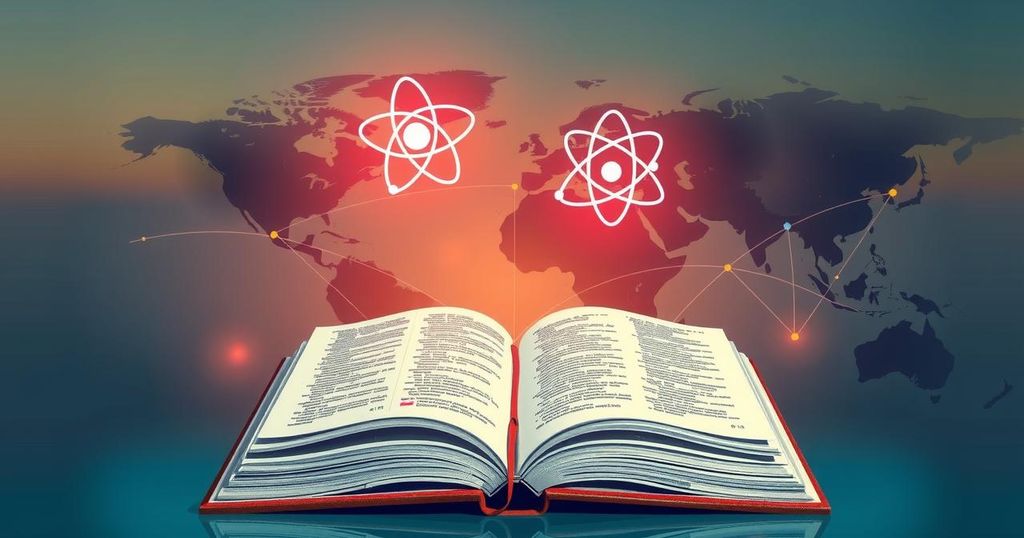Iranian diplomat Seyed Kamal Kharrazi stated that Iran is prepared to share its nuclear knowledge with neighboring countries. He criticized Western interventions in the region, highlighted the importance of historical ties with Egypt, and emphasized the enduring nature of the Resistance ideology. Kharrazi reaffirmed Iran’s commitment to supporting its regional allies amid ongoing Israeli-Palestinian tensions.
TEHRAN – Iran has expressed its willingness to share its nuclear knowledge and expertise with neighboring countries, as highlighted by Seyed Kamal Kharrazi, the head of the Strategic Council on Foreign Relations. In an interview with Al-Masry Al-Youm, Kharrazi outlined the historical context of the region, underscoring the disruptive impact of colonial powers and the formation of Israel aimed at destabilizing West Asia.
Kharrazi criticized the persistent interventions of the U.S. and Europe, asserting that these powers exploit division and conflict to maintain control in the region. He emphasized that political relations between Iran and Egypt should reflect their historical ties, determined by the leadership of both nations regardless of existing differences.
Discussing the Resistance, Kharrazi characterized it as a fundamental ideation of regional struggle that cannot be eradicated. He reiterated that Iran’s development of peaceful nuclear technology has remained unaffected by economic sanctions and reaffirmed Iran’s commitment to sharing its advancements with its regional counterparts.
Kharrazi criticized the concept of “Middle East” as a colonial construction, alleging that Western interventions perpetuate dependency and vulnerability among regional states. He urged nations in West Asia, particularly Iran, Egypt, and Saudi Arabia, to embrace multipolarity and enhance regional cooperation to counter foreign pressures.
When discussing Iran’s relationship with Egypt, Kharrazi expressed openness to improving ties, dismissing narratives of declining regional influence. He also commended China’s role in facilitating the recent thaw between Iran and Saudi Arabia, advocating for deeper collaboration across economic and military domains.
Kharrazi condemned Israel’s expansionist strategies, indicating that the ongoing displacement of Palestinians serves Israel’s territorial ambitions. He reaffirmed Iran’s commitment to supporting Resistance groups like Hamas and Hezbollah, stating, “Iran considers it a duty to support Resistance forces fighting Israeli occupation.”
Following a military escalation between Israel and Hamas that initiated on October 7, 2023, Kharrazi noted that Israel’s efforts to dismantle Hamas resulted in severe casualties among Palestinians without achieving its objectives, ultimately culminating in a ceasefire and a prisoner exchange after extensive conflict.
In summary, Iran’s diplomatic stance underlines its readiness to share nuclear technology with regional allies while navigating complex geopolitical relations marked by historical grievances and colonial legacies. Kharrazi’s comments highlight Iran’s commitment to regional resistance against perceived external domination and emphasize the importance of collaborative ties among nations in West Asia to promote peace and stability.
Original Source: www.tehrantimes.com






